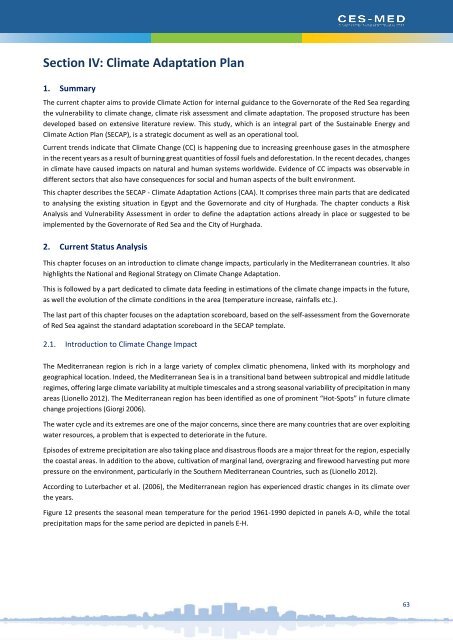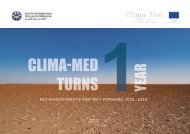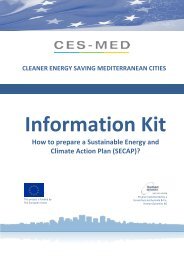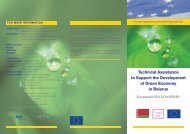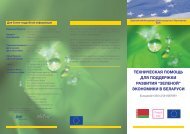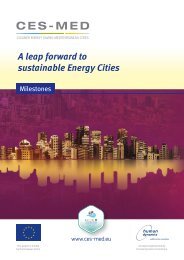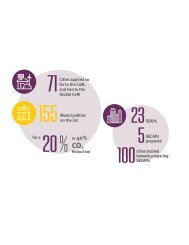020318_Hurghada SECAP_FINAL
Create successful ePaper yourself
Turn your PDF publications into a flip-book with our unique Google optimized e-Paper software.
Section IV: Climate Adaptation Plan<br />
1. Summary<br />
The current chapter aims to provide Climate Action for internal guidance to the Governorate of the Red Sea regarding<br />
the vulnerability to climate change, climate risk assessment and climate adaptation. The proposed structure has been<br />
developed based on extensive literature review. This study, which is an integral part of the Sustainable Energy and<br />
Climate Action Plan (<strong>SECAP</strong>), is a strategic document as well as an operational tool.<br />
Current trends indicate that Climate Change (CC) is happening due to increasing greenhouse gases in the atmosphere<br />
in the recent years as a result of burning great quantities of fossil fuels and deforestation. In the recent decades, changes<br />
in climate have caused impacts on natural and human systems worldwide. Evidence of CC impacts was observable in<br />
different sectors that also have consequences for social and human aspects of the built environment.<br />
This chapter describes the <strong>SECAP</strong> - Climate Adaptation Actions (CAA). It comprises three main parts that are dedicated<br />
to analysing the existing situation in Egypt and the Governorate and city of <strong>Hurghada</strong>. The chapter conducts a Risk<br />
Analysis and Vulnerability Assessment in order to define the adaptation actions already in place or suggested to be<br />
implemented by the Governorate of Red Sea and the City of <strong>Hurghada</strong>.<br />
2. Current Status Analysis<br />
This chapter focuses on an introduction to climate change impacts, particularly in the Mediterranean countries. It also<br />
highlights the National and Regional Strategy on Climate Change Adaptation.<br />
This is followed by a part dedicated to climate data feeding in estimations of the climate change impacts in the future,<br />
as well the evolution of the climate conditions in the area (temperature increase, rainfalls etc.).<br />
The last part of this chapter focuses on the adaptation scoreboard, based on the self-assessment from the Governorate<br />
of Red Sea against the standard adaptation scoreboard in the <strong>SECAP</strong> template.<br />
2.1. Introduction to Climate Change Impact<br />
The Mediterranean region is rich in a large variety of complex climatic phenomena, linked with its morphology and<br />
geographical location. Indeed, the Mediterranean Sea is in a transitional band between subtropical and middle latitude<br />
regimes, offering large climate variability at multiple timescales and a strong seasonal variability of precipitation in many<br />
areas (Lionello 2012). The Mediterranean region has been identified as one of prominent “Hot-Spots” in future climate<br />
change projections (Giorgi 2006).<br />
The water cycle and its extremes are one of the major concerns, since there are many countries that are over exploiting<br />
water resources, a problem that is expected to deteriorate in the future.<br />
Episodes of extreme precipitation are also taking place and disastrous floods are a major threat for the region, especially<br />
the coastal areas. In addition to the above, cultivation of marginal land, overgrazing and firewood harvesting put more<br />
pressure on the environment, particularly in the Southern Mediterranean Countries, such as (Lionello 2012).<br />
According to Luterbacher et al. (2006), the Mediterranean region has experienced drastic changes in its climate over<br />
the years.<br />
Figure 12 presents the seasonal mean temperature for the period 1961-1990 depicted in panels A-D, while the total<br />
precipitation maps for the same period are depicted in panels E-H.<br />
63


